Getting your restaurant running can be an exciting time for a new owner. Every decision seems like a new adventure, and one step closer to achieving your dream. However, it’s easy to become overwhelmed when it comes to your new restaurant’s insurance.
And it’s just as easy to push off setting up the right insurance policy as something you “can handle later,” while focusing on the fun aspects of working with your chef on the menu or finalizing dining area décor. After all, just getting the bare minimum will be okay to start off with, right?
But the fact is, you never want to be under-insured in your business. Even if you do everything else right, just one bad day, one bad storm, or one bad accident in your establishment could mean the difference between a long life for your restaurant and going out of business.
You want to have the right coverage for your particular business so you’ll have the protection you need if something goes wrong. Below are some of the most common elements to a restaurant policy that you should understand as you set up your business’ insurance.
Please note: these are only basic explanations of the different areas of commercial restaurant insurance. What is covered and how much is covered varies from provider to provider and policy to policy. Make sure to read through and fully understand your particular policy before agreeing to it. And when in doubt, get a competitive bid from more than one insurance company. It’s not just about saving money, but about getting the most comprehensive coverage for what you spend.
Liability insurance
This basic coverage for restaurateurs can cover costs if you’re held accountable for food or alcohol related incidents. For instance, if a staff member escorted an intoxicated patron to their car and they end up hurting someone while driving under the influence, you may be held accountable. Food poisoning or bad physical reactions to what should be a gluten-free menu are other factors that could fall into this kind of insurance.
General liability insurance also covers circumstances involving a customer or someone else who comes into your establishment (a vendor salesperson or delivery person, for instance) and gets injured, or if their personal belongings get damaged on your property.
Property insurance
Property insurance can cover a wide variety of items in your restaurant, from the furniture to the kitchen equipment to the building itself in the case of weather damage, fire, or other events specifically covered in the plan. If you’ve just installed brand new equipment (or you know a particular type of equipment will be very expensive to replace down the line), it makes sense to get coverage for those parts of your kitchen just in case something goes wrong.
Business owner’s policy
The term for a combination of general liability insurance and property insurance, a business owner’s policy is often chosen by restaurants to save money on the bundle for coverage they’d be paying for anyway. This can but doesn’t necessarily always include business interruption insurance, so as is the case with all of these options, make sure you understand exactly what is covered on your policy before signing.
Business interruption coverage
This coverage is focused on situations outside of your control (like weather events) where your restaurant cannot serve customers. When winter storms are getting so bad that it’s impossible for both customers and employees to make it to your restaurant safely (remember winter storm Juno last year?), having this coverage helps make sure you can keep up finances.
Liquor liability
This coverage is often required by law in order for restaurants to get a liquor license. It covers costs if someone you served alcohol ends up committing a crime or causing injury/damage while still intoxicated.
Food contamination insurance
If you lose the food in your walk-in or your freezer due to power outages, you’d normally have to deal with those losses out of pocket. Food contamination insurance will help pay to restock your kitchen instead.
Law and ordinance coverage
This covers any upgrades or repairs your business might be required to take on if new laws or ordinances about property upkeep are instituted in your area. If you’re in an older building and the local laws change to mandate certain HVAC, wiring, or plumbing upgrades, this coverage can help you with funds to complete that work.
Life insurance
The bank you go to for your business loan might require you to take out a life insurance policy along with the loan. This will ensure that if something happens to you as the owner, they’ll be able to recoup their investment. It also protects your loved ones in the case that something does happen to you and they’re left to manage your finances.

Workers’ comp insurance
This is a crucial part of any business (most states require it by law), but especially important for restaurants since worker accidents can happen both in the kitchen and the front of the house. This policy protects you in the event an employee experience an injury on the job, covering their lost wages and medical expenses. Many workers’ comp policies throw in employer’s liability insurance, which would help you pay for any legal fees or damages if you’re sued by an employee over an injury.
Commercial auto insurance
This insurance covers automobiles used for deliveries, event catering, and other work purposes. How much of this insurance you’ll need depends on your type of establishment and how much you use vehicles for those jobs.
Inland marine insurance
Similar to the commercial auto insurance, this coverage is specifically for transporting equipment and other materials. Caterers in particular will want to look into this kind of insurance – if your equipment gets damaged or even stolen during transporting it to and from an event, inland marine insurance can be a great help.
Rising water coverage and flood damage coverage
Water damage can create complicated problems for your restaurant and you definitely want to make sure your insurance covers various situations. Flood damage coverage is generally defined by insurance companies as an overflow of water onto normally dry land and into your building.
On the other hand, rising water coverage tends to be for damage caused by water entering a property as a result of overflow from a sump pump or water that backs up through sewers, pipes, or drains. Water back-up and sump pump coverage is typically endorsed to your existing commercial building policy, while flood damage is a separate policy unto itself.
Specific peril insurance
General liability insurance might not cover all damages for all situations. Damages (but not nessesarily loss of income) from flooding, earthquakes, and other natural disasters, as well as power outages, can be covered under insurance for specific perils common in your area.
Need more insight on creating a successful restaurant business plan? We have tips for you:






